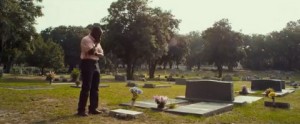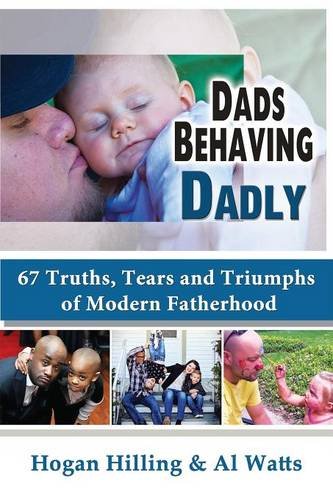I expected “Courageous” to give me a renewed sense of dedication to living the life of a great father and setting the right example for my children. After all, the movie emphasizes the need for fathers to play an active role in the lives of their children, which I already do.
But I felt a greater sense of a need for deep reflection as I looked inward and saw a character I did not expect to see: Nathan Hayes.
Nathan is the newest deputy in the sheriff’s office that is pivotal in the movie. He is a loving husband, and the dedicated father of three children, so much so that risks his life to save his infant daughter.
He also grew up fatherless, and could have turned out to be another statistic were it not for the efforts of a mentor who kept him straight and introduced him to a life of faith.
I felt connected to Nathan because I, too, grew up fatherless. Nathan explained it to David Thomson, a young deputy who just finished his rookie year on the force, after David asked him if he really felt he had a messed up childhood because he did not have a dad.
“More than you know,” Nathan responds. He goes on to tell him about the scars he still lives with even though he is a loving and involved father in his children’s lives.
Men usually shrug at having grown up fatherless, unwilling to confront the raw feelings of abandonment that inevitably comes with it.
Yet regardless of the reasons for a father’s absence, the results are the same. A boy who has no father has no role model, and will search for one wherever he can find it. Some find a false one in gangs. The lucky ones find one in church, other reputable organizations, or a mixture of influential people in their lives.
Some never find one, and are at greater risk of poverty, drug use, and even jail.
I admit that some days I shrug less than others at my father’s absence, but the scars are always with me.
No one taught me how to catch a baseball, and I can still feel the ridicule of other kids after letting the ball fly past me in right field. If I search deeply enough, I can feel the envy of other Boy Scouts whose dads taught them how to tie a knot or build a campfire. And I still have a scar to remind me that my father wasn’t around to teach me not to drag a razor horizontally across my upper lip.
Nathan’s scars may have been different, but they were scars nonetheless. Yet he also did something I aspire to do someday. He forgave his father. With all of his heart and soul, Nathan forgave his father for abandoning him as a child.
But here is a key difference between Nathan and me. Nathan’s father is dead. He has no way of knowing if his father regretted abandoning him or not, yet Nathan forgave him anyway in a touching graveside scene.
Nathan showed his courage by risking his life to save his infant daughter, but it takes infinitely more courage to forgive the man who so blatantly wronged him.
My father is alive, but has expressed no remorse for leaving his wife and four children 35 years ago. How does someone forgive another who has not asked for it?
Nathan did, and I wonder if I have the same courage inside of me.
So, is “Courageous” a movie about fatherlessness and the need for men to play an active role in the lives of their children? Or is it a movie about forgiveness, and a father letting go of the scars he feels having grown up fatherless?
It’s both. I just need to decide which one speaks more loudly to me.
This is a repost of a blog entry I wrote for The Father Factor, the blog of the National Fatherhood Initiative, on Oct. 11, 2011.



